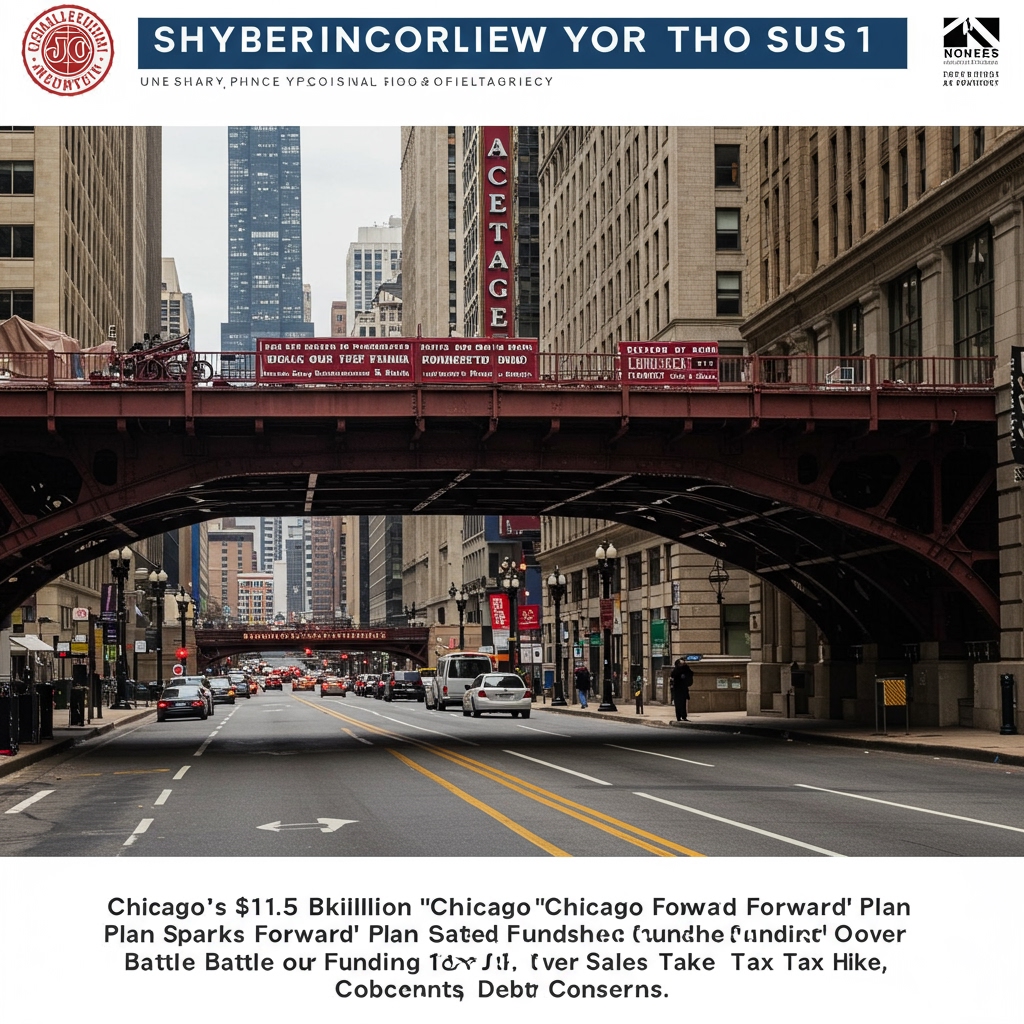In a development that has sent ripples through political and financial circles, Mayor Brandon Johnson’s much-anticipated pension working group has been quietly dissolved without producing a single report. This unforeseen cessation of operations is widely perceived as a damning indictment of City Hall’s internal operations and raises significant questions about the administration’s strategic focus on the city’s complex financial landscape.
A Silent Disappearance
The abrupt and unannounced dissolution of the Mayor’s pension working group marks a critical juncture for Chicago’s fiscal transparency. Tasked with navigating one of the city’s most enduring and pressing financial challenges—its staggering pension liabilities—the group was expected to deliver concrete recommendations and insights. Its disappearance without a public statement or the customary release of findings is not merely an administrative oversight; it is seen by many as a troubling signal that a crucial conversation about the city’s long-term solvency has been sidestepped, or worse, abandoned.
The absence of a report denies the public, financial analysts, and other stakeholders a vital window into the deliberations and potential solutions proposed by the group. For a city grappling with a substantial pension burden, the failure to articulate any progress or even a framework for future action underscores a disturbing lack of accountability in addressing core financial issues. This silence, more than any pronouncement, speaks volumes about the challenges confronting the city’s ability to tackle its most formidable budgetary hurdles.
Indictment of City Hall Operations
The quiet termination of the working group is being interpreted as a direct criticism of City Hall’s internal operations. Critics contend that such a crucial body, established to address a problem central to Chicago’s economic stability, should operate with the utmost transparency and professionalism. Its unceremonious end suggests internal disarray, a lack of clear objectives, or perhaps an inability to achieve consensus on politically sensitive recommendations.
This development raises fundamental questions about the operational efficiency and strategic direction within the current administration. An effective government relies on robust internal processes, clear communication, and a commitment to seeing critical initiatives through to their logical conclusion. The failure of the pension working group to even produce a basic report suggests a breakdown in these essential elements, leading to a perception that serious fiscal challenges may not be receiving the sustained, methodical attention they require.
Revenue Focus Versus Cost Side Realities
At the heart of the criticism surrounding the pension working group’s demise is the perception of Mayor Brandon Johnson’s focus on finding more revenue for the government while not taking seriously the cost side of Chicago’s ledger. This imbalance in fiscal strategy is a long-standing point of contention for those advocating for comprehensive financial reform.
While the pursuit of new revenue streams is undoubtedly a necessary component of any sound fiscal plan, it cannot, by itself, solve systemic financial problems. The city’s pension crisis, for instance, is not solely a revenue problem; it is fundamentally a cost problem. It requires a diligent examination of spending, liabilities, and the long-term sustainability of existing commitments. The dissolution of a group specifically tasked with exploring these complex cost-side issues suggests a potential overreliance on revenue generation as the primary solution, potentially deferring necessary, albeit difficult, decisions on expenditure control and structural reforms.
Observers of Chicago’s financial news often highlight the need for a balanced approach that combines thoughtful revenue strategies with a rigorous commitment to managing and reducing existing costs. The group’s quiet dissolution appears to reinforce concerns that the administration may be prioritizing politically less contentious revenue-seeking measures over the more challenging, yet ultimately essential, task of confronting the city’s deep-seated cost-side issues.
Implications for Chicago’s Fiscal Future
The unspoken conclusion to the pension working group’s tenure has broad implications for Chicago’s fiscal health and public confidence. Without a clear path forward for addressing its pension obligations, the city faces continued scrutiny from rating agencies and investors, potentially leading to higher borrowing costs and reduced flexibility in future budgeting.
For residents, the lack of progress on this front means that the specter of financial instability continues to loom large over vital public services and the city’s economic future. The news of the working group’s quiet dissolution sends a clear signal that the arduous work of confronting the city’s profound financial challenges is far from over, and perhaps, has only just begun to expose the true complexities facing the current administration.















